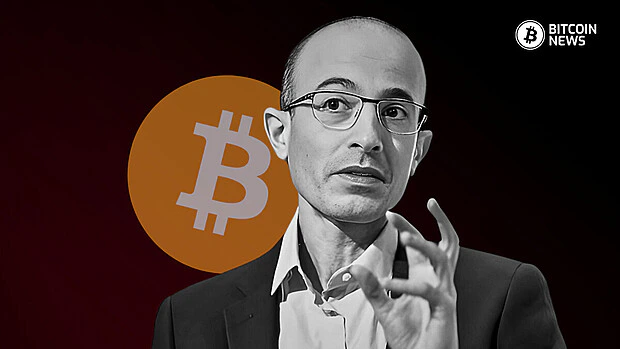Renowned Israeli philosopher Yuval Noah Harari, best known for his best-selling book “Sapiens,” recently described Bitcoin as a “currency of distrust.” This has sparked a major discussion within the Bitcoin community, as he challenges the foundational principles behind Bitcoin’s appeal.
Harari acknowledges that Bitcoin proponents might have valid reasons to distrust traditional banks.
However, he argues that their reliance on Bitcoin fundamentally originates from a broader distrust of human institutions. According to Harari, this perspective is “alarming” because the money is supposed to foster trust between strangers.
Harari noted that historically, there was minimal trust in institutions like banks and governments, leading to the use of gold for minting money.
However, according to him, most of today’s money, including currencies, bonds, and shares, exists as computer data, a concept that is difficult for the average person to grasp.
The philosopher expressed hope that humanity would find a way to build more trustworthy institutions rather than relying on technologies of distrust.
He warned that over-reliance on such technologies could lead to a future where algorithms, rather than humans, control the world. He stated:
“Humans control the world because we learned to do this. If we now lose trust in human institutions, this will limit the amount of money and handicap economic activity and cooperation.”
Harari’s post on X quickly drew reactions from the Bitcoin community, with several prominent figures offering counterarguments.
Lyn Alden, founder of Lyn Alden Investment Strategy, responded to Harari by stating that encryption allows people to trust websites and safely buy goods and services online. She explains:
“Similarly, Bitcoin gives people more choice in who or what to trust, rather than them being beholden to whichever central bank monopoly they happen to be born under.”
Bitcoin advocate Stephan Livera added to the discussion, arguing that Harari’s perspective represents a fallacy of composition.
“It’s not that bitcoin HODLers distrust all institutions, it is that we specifically distrust the state’s control of money. Many other institutions will in fact improve once we take the printer away from the state,” Livera stated.
The debate initiated by Harari highlights the ongoing disagreement between traditional financial systems and Bitcoin as an emerging technology in the sector.
While Harari warns of the risks associated with relying on a “currency of distrust,” proponents argue that Bitcoin offers a new paradigm of trust, one that is decentralized and not beholden to traditional institutions.










